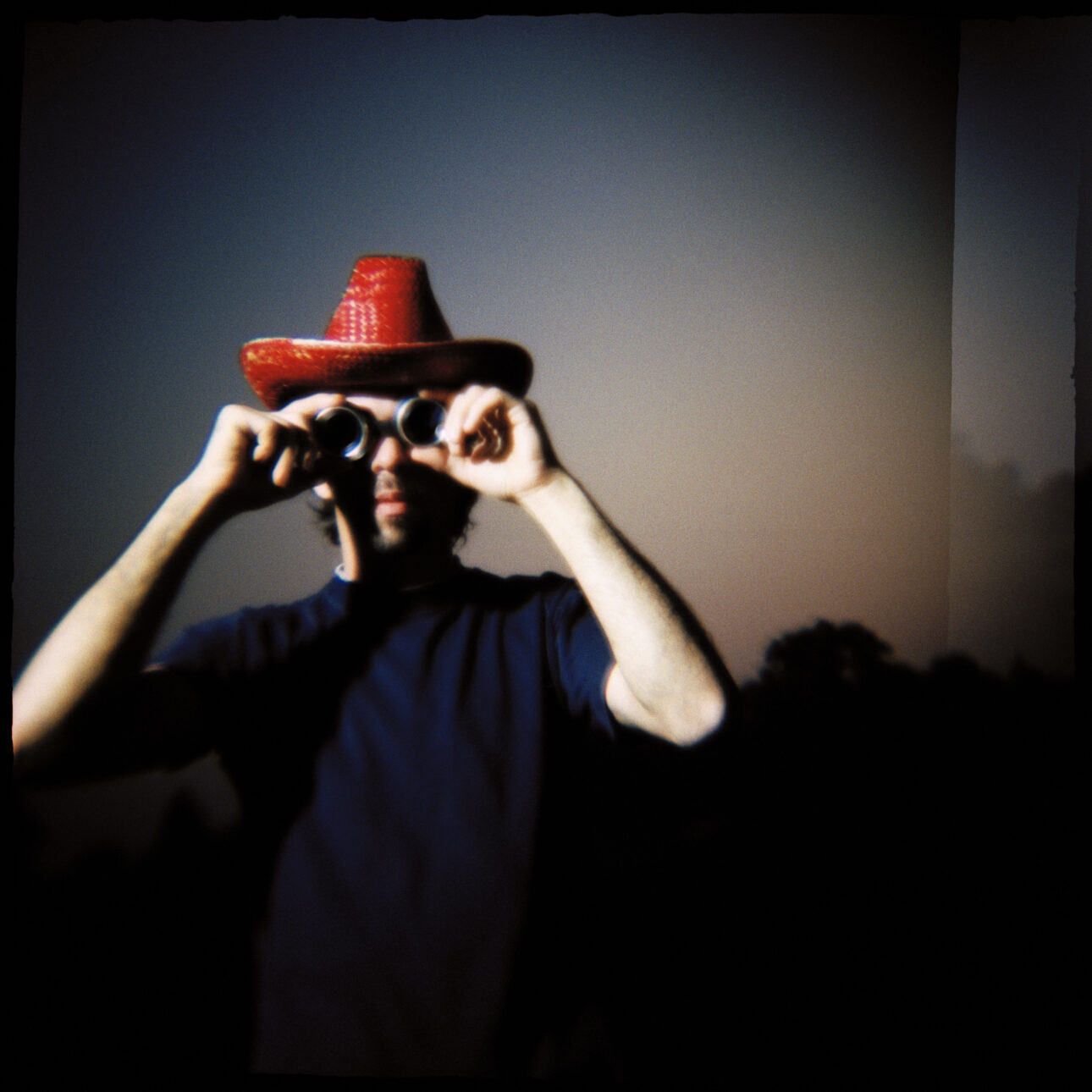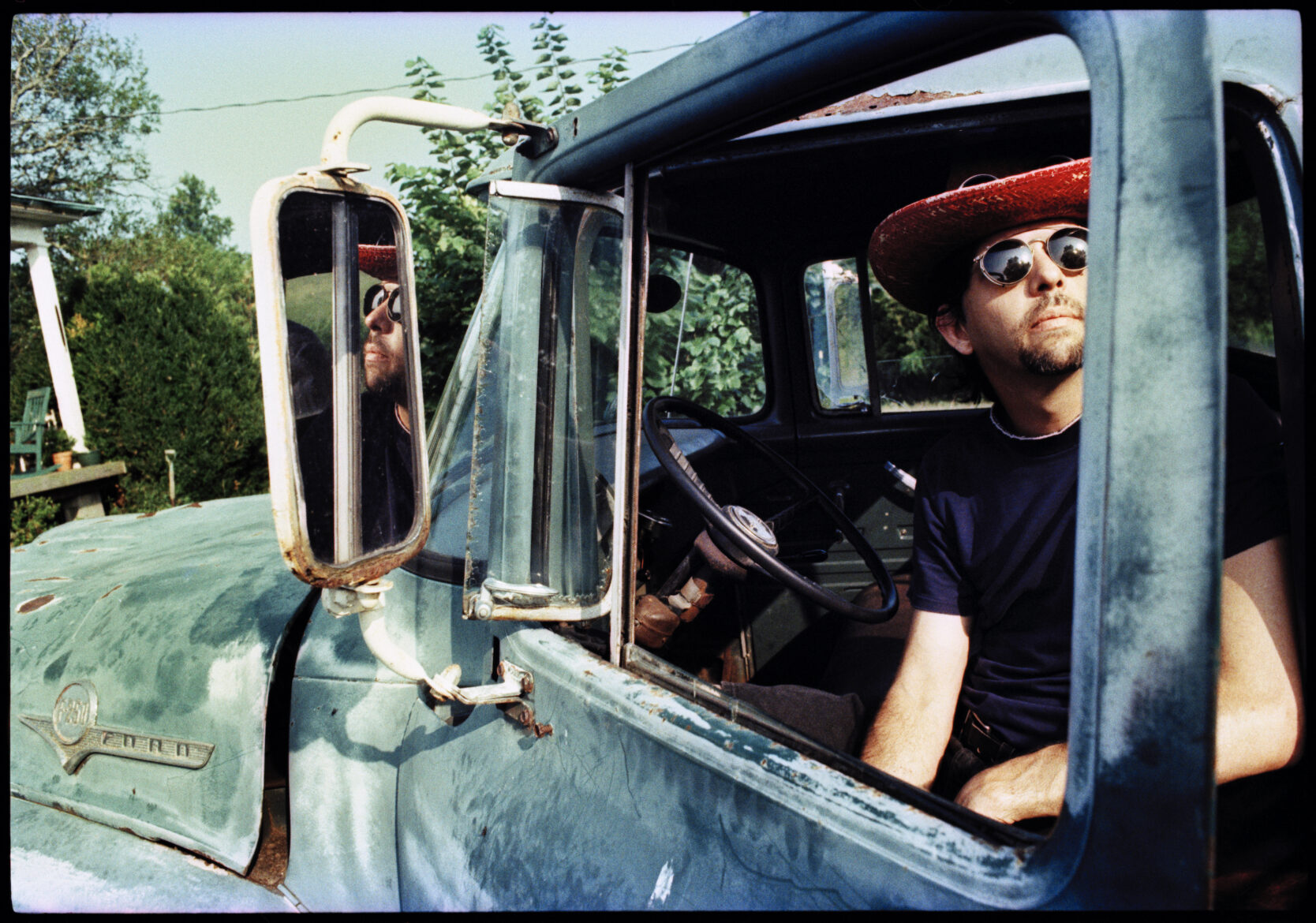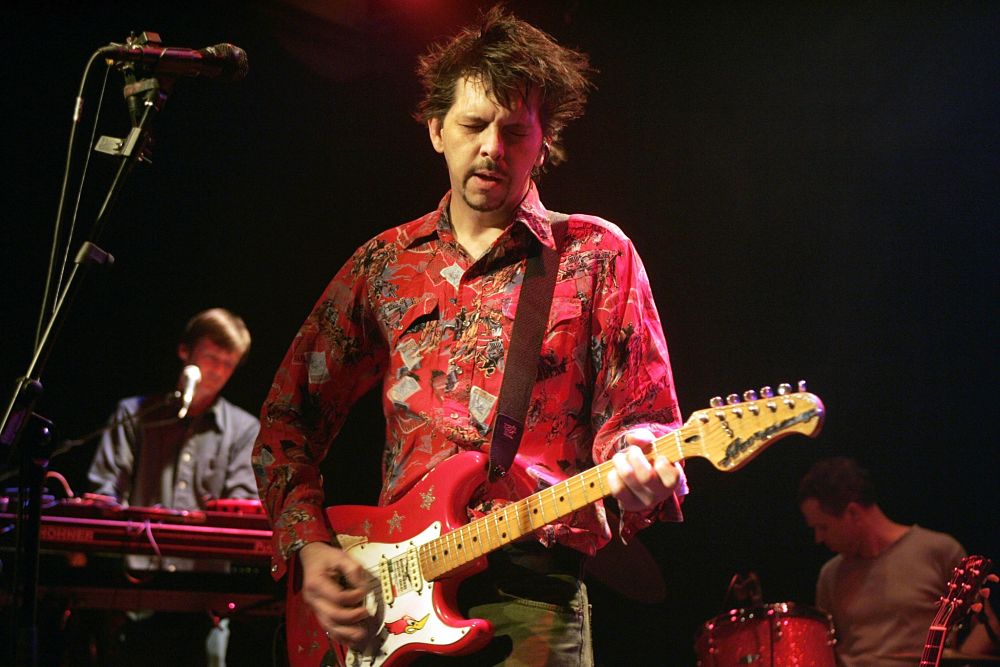Sparklehorse fans had long since given up hope. They knew Mark Linkous, the haunted and brilliant leader of the Virginia-based indie-rock project, had been working on a new Sparklehorse record at the time of his death in March 2010. Obituaries stated the album was nearly finished being recorded, with Linkous planning to set up a studio in Knoxville, Tn.
But then Linkous took his own life, and the project was abandoned. After 13 years of silence, it didn’t seem too likely that this holy grail of lost albums would emerge. That changed this summer, when we learned that Linkous’ brother Matt and sister-in-law Melissa — musicians who performed in live incarnations of Sparklehorse over the years — had spent recent years painstakingly completing the songs Linkous left behind.
Matt and Melissa knew Linkous’s music better than anyone. Before Sparklehorse, Matt played with his brother in a long-forgotten band called Salt Chunk Mary. “It was a bit more aggressive than Sparklehorse. But there were definitely Sparklehorse elements there,” recalls Matt. “We opened up for Yo La Tengo during the Fakebook tour. It was great.” Adds Melissa, “Mark was so easy to work with. And so fun. Matt and Mark and myself, we had a sense of wonder for getting weird and different sounds. Mark and I could play with a voice changer for hours.”
After his brother’s death, Matt was so devastated that he couldn’t listen to music at all. Eventually, he and Melissa began carefully preserving the unfinished recordings that Linkous had been working on before they deteriorated beyond repair. “We got these tapes and handed them off as fast as we could and saved everything that we could,” Matt says.
For months, he agonized over whether or not to complete and release these final recordings. The songs, though, seemed to cry out to be heard. “I’ve had so many people say different Sparklehorse records meant so much to ’em and helped ’em through a difficult time in their life. So I was like, ‘yeah, it should be the right thing to do is people should hear this stuff,’” Matt says.
The resulting album, Bird Machine (a title the songwriter had scribbled in his journal), is potent and unmistakably Linkous, instilled with the keening fragility and surreal popcraft of his best work. While some songs are dark-eyed and mournful, others buzz with some of Sparklehorse’s most noise-damaged textures this side of Vivadixiesubmarinetransmissionplot. And with one exception (“Daddy’s Gone” previously appeared on the Danger Mouse collaboration Dark Night of the Soul), all tracks will be wholly new to Sparklehorse fans.
Bird Machine will be released by Anti- Records on Friday. SPIN recently spoke with Matt and Melissa Linkous about their memories of Mark and the long, complicated process of bringing these songs to light.
This interview has been edited and condensed.
Matt, when did you first become aware of your brother’s songwriting talent?
Matt: Music was always really important to us growing up. Mark was a few years older than me, and he was a little farther along with guitar than I was. When I was 12, 13 years old, we were hanging out and listening to early Blondie, early Stranglers, Buzzcocks, Gang of Four and stuff like that. We were playing along to these songs and writing these little songs. It didn’t take me long to realize that my brother was a very talented songwriter.
One of the unique things about Sparklehorse is that there’s a surreal element, and a sadness, to the music. Was that there from the beginning, when you were young?
Matt: Even as kids, and later when we were playing together and stuff, he was always very sincere about everything he did musically and very honest and pure. Poured his heart out in that stuff.
What was the event that triggered the end of Salt Chunk Mary and the beginning of Sparklehorse?
Matt: I think Mark needed to — and we talked about this, him and I — really develop his stuff and focus on it. He was living in Richmond. I helped move him out to Fluvanna County, out to this old farmhouse from the 1800s. With a four-track recorder that he borrowed from [Cracker’s] David [Lowery], I believe, he really started focusing on his own thing. That’s what he needed to do, and that’s when this stuff really started to come together.
So, years went by, he released a couple of Sparklehorse records, and then you reunited with Mark and played with him on a tour opening for R.E.M.
Matt: Yeah! One day he just called up and said they wanted to send him on tour with R.E.M. I was like, ‘That’s awesome. You should do that,’ and he was a little like, ‘Eh…’ It wasn’t R.E.M. — it was the stadium thing. And I was like, ‘Oh, you’ll be great.’ And then he goes, ‘OK, I’ll do it if you do it!’ — meaning Melissa and I.
That’s a big gig, playing stadiums, opening for R.E.M.! That must’ve been wild.
Melissa: That’s the thing — you pull up and you do your soundcheck and see all those empty seats and, my god, there’s all these people working to get everything right. Once we got onstage, it was a small band, and it was just family onstage. It was just calm and sweet and easy.
Let’s talk about Bird Machine. I read that you had some conversations with Mark before his passing about what this album was supposed to sound like. What do you remember about those conversations?
Matt: One of his last visits here, we hung out for quite a while. He was here for a couple of weeks. We were talking about what he wanted to do with his next Sparklehorse record. I remember [talking about] the Kinks’ Village Green Preservation Society, listening to that record, and how much he appreciated the pure, honest pop craftsmanship of those albums and how much he liked the songs. Melissa and Mark would run around in Melissa’s car and be playing tapes — playing the Kinks and the Beatles’ Revolver on the stereo. We were talking about him getting a really good rhythm section together and doing some live-type recordings. He was very open. We’d been like that since we were kids, you know?
I can hear influences where he’s just letting it loose, stuff from when we were kids. “I Fucked It Up” — that’s like the Buzzcocks.
My understanding is that after Mark’s death, you believed this album would never see the light of day. You thought he hadn’t recorded vocals for it.
Matt: After his death, I couldn’t even listen to music, period.
Any music at all?
Matt: I just couldn’t. It took a long time for us. Later, as we got to archiving his work, listening to these songs and hearing how far along they were — they were just beautiful. That’s kind of it, really — how beautiful these songs really are.
What was it like to sit down and listen to them for the first time?
Matt: Really intense. Still is.
What was the process of archiving these tapes?
Matt: There were so many different tapes. There were micro-cassettes. There were cassette tapes. There were DTRS tapes and DAT tapes. Then there’s one-inch and one-inch and radar drives. It took a lot of time, and a lot of organizing.
Melissa: We had pages and pages of cataloging. From there, we were able to hand it over to someone who had worked with Mark in the past, who’s an archivist and audio engineer. I think the first thing he focused on was the tapes, since they deteriorate over time.
Matt: They fall apart. We got these tapes and handed them off as fast as we could and saved everything that we could, on a mission just to save.

Because Mark was working on the album shortly before his death, people might approach this record expecting it to have this heaviness to it. But it doesn’t strike me as being an overwhelmingly sad record. There’s a lot of joy in these songs, too.
Melissa: I think Mark recognized and communicated so well the intertwining of life and of beauty and sadness and pain and joy and light and dark. And he was able to put that in the music. You asked about hearing the music for the first time and I’m sure fans and you experience this — he’s in those notes. His sweetness is in those sounds, and that was really powerful.
Matt, you described the decision of whether to release this album as the hardest you’ve ever made. When and how did you come to it?
Matt: Well, I truly believe that Mark was one of the greatest songwriters of his time. I just felt like the songs were beautiful. They were so Mark, and I felt that he wrote this music for people to hear. I came to the decision, over time, that people should hear it because they would never know. No one would know.
Melissa: I think it was the songs themselves — they were fully realized and fully present. It was the songs that gave us the go-ahead in the end.
So many Sparklehorse songs seem to reference bird imagery.
Melissa: Mark and I, we had this bird thing. Woodland creatures. I think birds bring about a feeling of movement and taking flight and lightness and air. Maybe that helped lift him? I have no idea. He was just a weird bird person like me, I guess.
Spiders, birds, cows — there are a lot of animals in Sparklehorse songs.
Matt: A lot of that is from living in the areas that he lived in. I remember looking at a tiny grasshopper with Mark one time. We were adults — like, in our 30s — leaning over and looking at a little grasshopper and just being amazed. We were just like, ‘Wow, that’s like a little dinosaur.’
Of the songs on the new record, which was the hardest to complete?
Melissa: There were times when Matt and [guitarist] Alan [Weatherhead] and [engineer] Joel [Hamilton] and I — we’d be mixing ‘O Child.’ And then we would be silent and just hold space.
Matt: Total silence. That’s a heavy, heavy song. None of them were harder technically than any other one, but it was just an emotional thing. Everybody who worked on it cared about him a lot or was related to him. We kept it pretty tight.
A lot of Sparklehorse songs sound abrasive and deliberately messed up, like, ‘Is it supposed to sound like that?’ How did you try to honor that?
Melissa: I think, again, it was the songs. The songs would tell you. There was a good foundation there to work with.
On those early records, there are little elements of family. For example, there’s a voicemail from your mother that plays on Vivadixiesubmarinetransmissionplot.
Matt: He recorded our dog at one point [laughs].
Sparklehorse fans assumed that this record would never come out. After 13 years, people just figured it was never going to be finished.
Matt: Everyone did, and this was no easy task. I just felt like it was important and it needed to be out there.
Melissa: Mark was so happy to be on Anti- Records. The love that they have for Mark and his music is evident.
Matt: Mark was proud to be on a label with his friend Tom Waits. He was so into the fact that Tom was on a Sparklehorse record. Man, he was so into that. When he met Tom, he was so happy.
Do you have a favorite Sparklehorse song? What makes it special to you?
Melissa: I can’t say I have a favorite. But Mark knew how much I loved ‘Cruel Sun’ because I loved it when Mark sang like that. We would just sing together, like, ‘CRUUUEEEEEL SUN!’
Matt: I love ‘Sea of Teeth’ and I love ‘Tears on Fresh Fruit.’ I was there when he was doing all of that. It was just a wonderful memory of ‘Tears on Fresh Fruit’ — just being at the farmhouse together, riding motorcycles together, him playing guitar in the old farmhouse. There’s so many songs that I love.





